Are you a teacher eager to enhance your skills and bring fresh ideas into the classroom? Writing a professional development request can open doors to amazing opportunities that boost your teaching effectiveness and student engagement. In this article, we'll guide you through crafting a persuasive letter that outlines your goals and the benefits of attending professional development programs. Join us as we explore effective strategies to help you make the most of your professional growth journey!
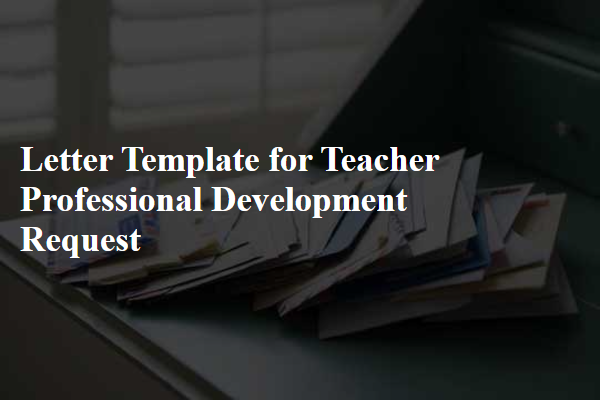
Personal Information
The personal information section of a professional development request is crucial for establishing the identity of the teacher. This section typically includes the full name, for example, "John Smith," the position held, such as "English Language Arts Teacher," the name of the school, like "Lincoln High School," and the school district, such as "Springfield School District." Contact information is paramount too; including a professional email address, for instance, "john.smith@springfieldschools.org," and a phone number, such as "(555) 123-4567," ensures easy communication. Additionally, mentioning the teaching experience in years, for example, "5 years," along with any certifications, like "Certified Teacher in English Language Arts," provides context for the request. Further, highlighting specific areas of interest for professional development, such as "differentiated instruction" or "technology integration," can help clarify the purpose of the request.
Purpose and Benefits
Professional development programs for educators enhance teaching skills and improve student outcomes significantly. Structured training sessions foster collaboration among teachers, providing opportunities to share best practices and innovative strategies. Workshops focusing on emerging educational technologies, such as interactive whiteboards or virtual learning platforms, can equip teachers with necessary tools to engage students effectively. Research indicates that ongoing professional development leads to increased teacher motivation and job satisfaction, resulting in a positive classroom environment. Investing in teacher growth ultimately benefits overall school performance, creating a cycle of continuous improvement within the educational community.
Program Details
Professional development programs for educators are essential for enhancing teaching efficacy and student engagement. The Summer Educator Institute in Chicago, Illinois, scheduled for July 14-18, 2024, offers a comprehensive curriculum focused on innovative pedagogical strategies. Participants will engage in workshops led by renowned education experts such as Dr. Jane Doe, an advocate for inquiry-based learning. Additionally, the program includes networking opportunities which assemble over 200 passionate educators from across the United States. Attendees can earn up to 30 Continuing Education Units (CEUs), which contribute towards state certification renewal. Registration fees amount to $350, with a group discount available for teams of five or more. Engaging in this program promises to elevate instructional quality and foster a collaborative professional community.
Cost and Funding
Professional development programs for educators, such as workshops and training sessions, typically incur costs related to registration fees, travel expenses, and material resources. For instance, the registration fee for a renowned summer teacher workshop can reach approximately $500, while travel costs may vary depending on the location, averaging about $200 for domestic travel. Schools often seek funding through various avenues, including district budgets, grants from educational foundations, or partnerships with local businesses. Notably, the importance of investing in teacher training directly correlates with improved student outcomes, making allocation of funds for professional development a priority for educational institutions striving for excellence.
Commitment and Outcome
Professional development programs for educators emphasize commitment to ongoing learning and tangible outcomes. Workshops, such as those offered at the National Educators Association (NEA) Conference, foster collaborative environments where teachers enhance instructional strategies. Participants engage in hands-on activities that translate educational theories into classroom practices, ensuring improved student engagement and learning. Metrics such as student performance data (exam scores, assessments) serve as key outcome indicators to gauge the effectiveness of these initiatives. Successful outcomes not only boost teacher confidence but also cultivate a culture of continuous improvement in educational settings.
Letter Template For Teacher Professional Development Request Samples
Letter template of professional development request for teachers seeking workshops.
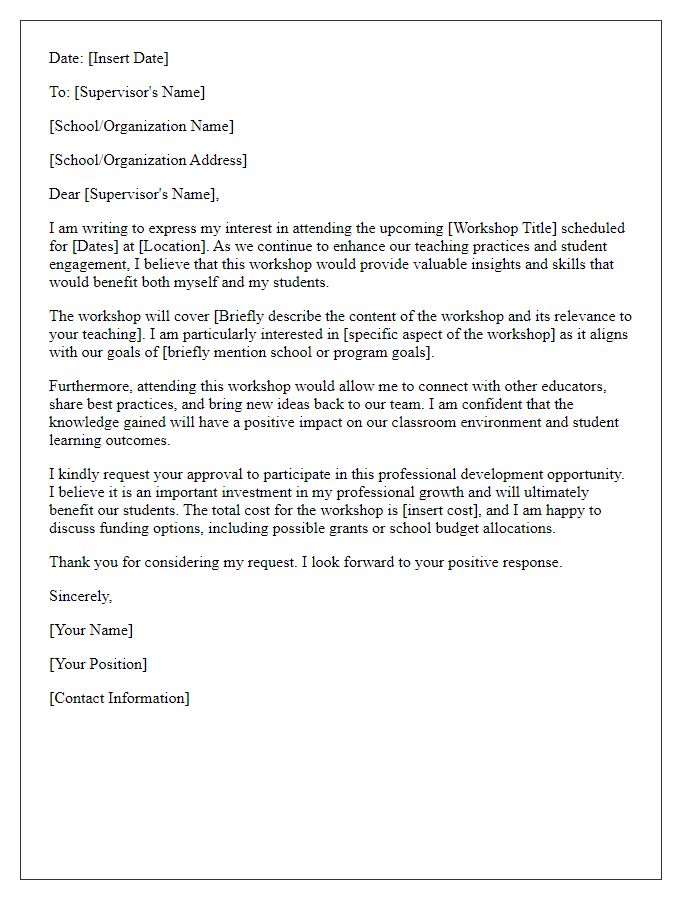
Letter template of professional development request for teachers to attend conferences.
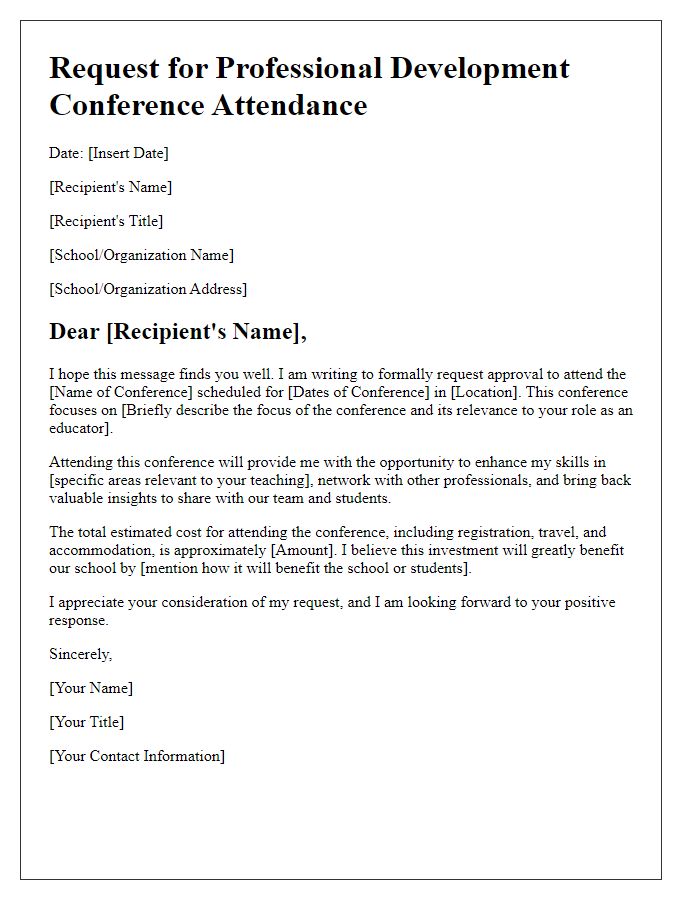
Letter template of professional development request for classroom technology training.
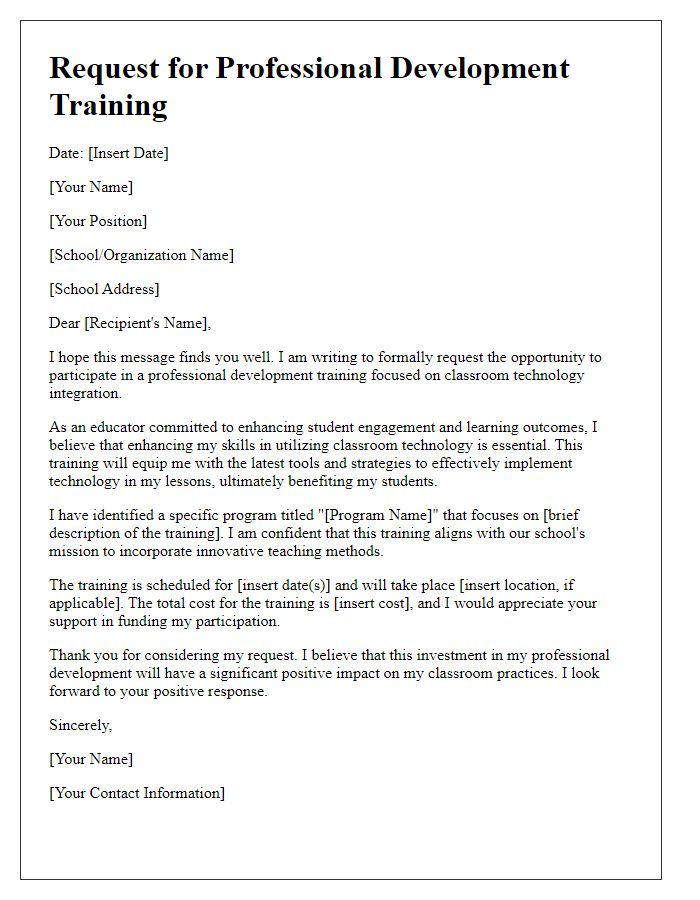
Letter template of professional development request for curriculum development seminar.
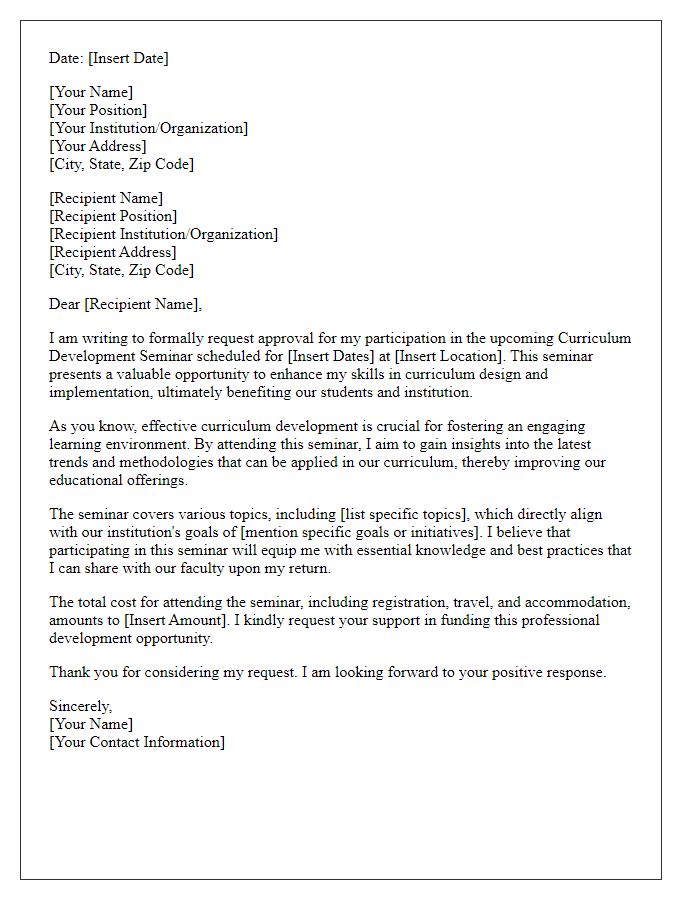
Letter template of professional development request for leadership training.
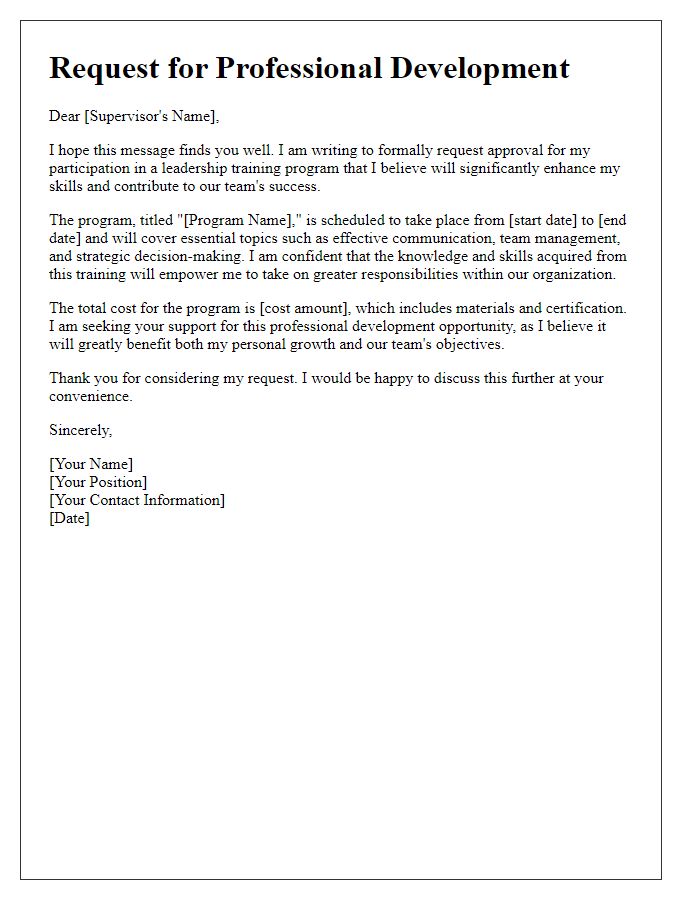
Letter template of professional development request for online course enrollment.
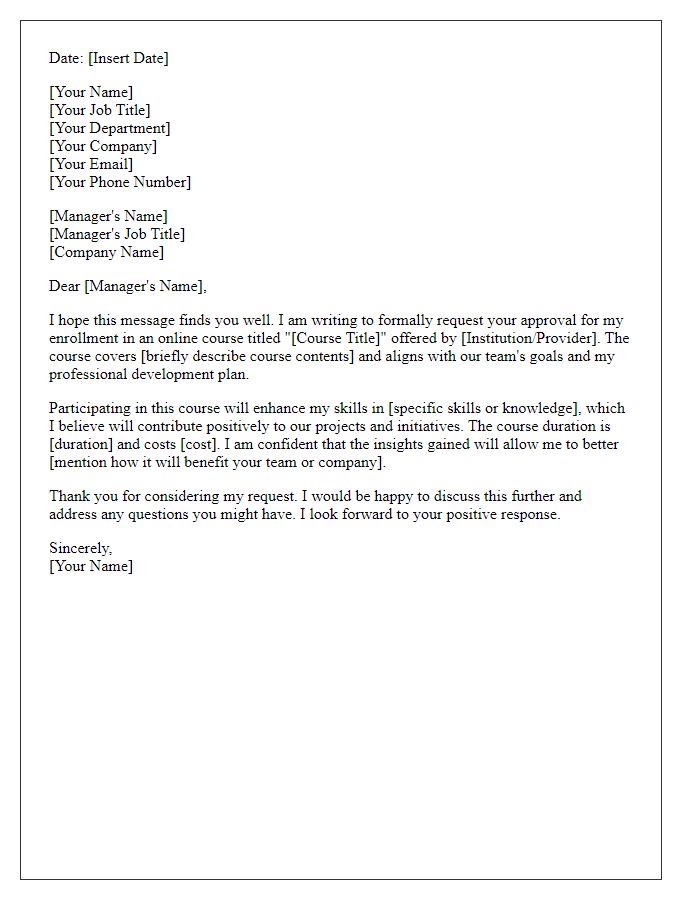
Letter template of professional development request for mentorship programs.
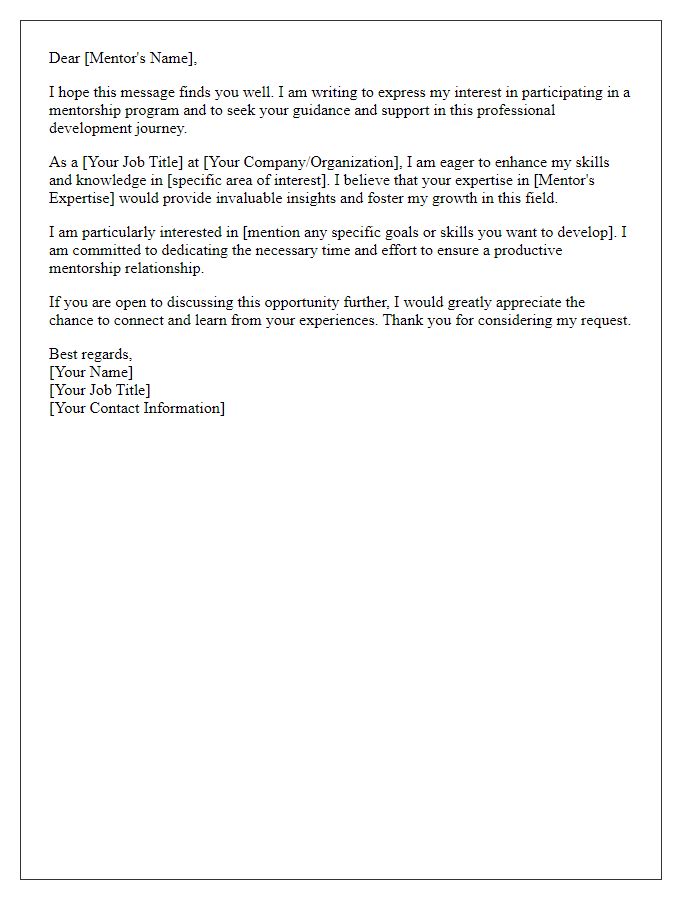
Letter template of professional development request for subject-specific training.
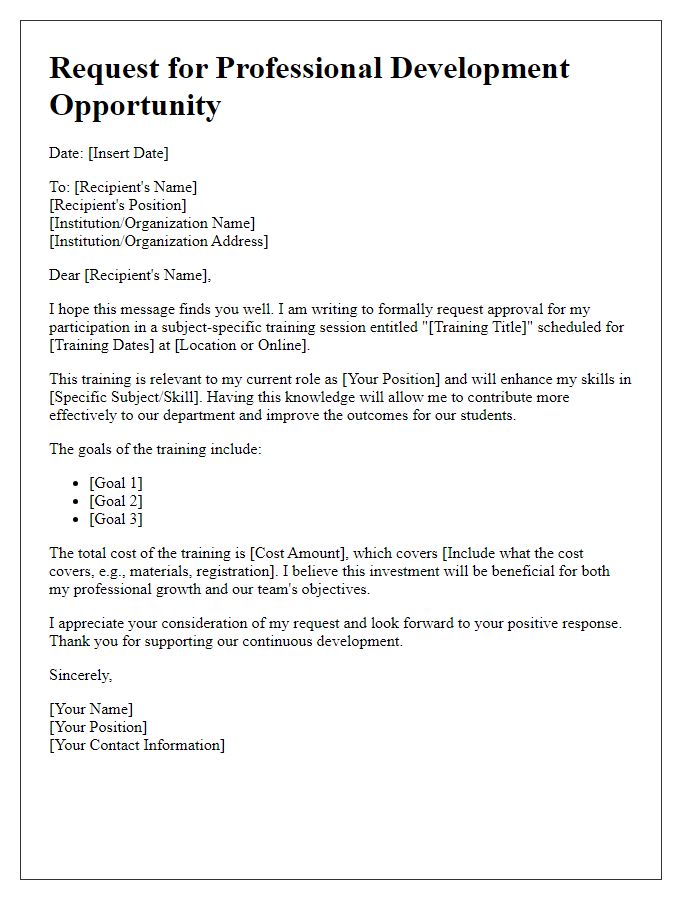
Letter template of professional development request for instructional strategy workshops.
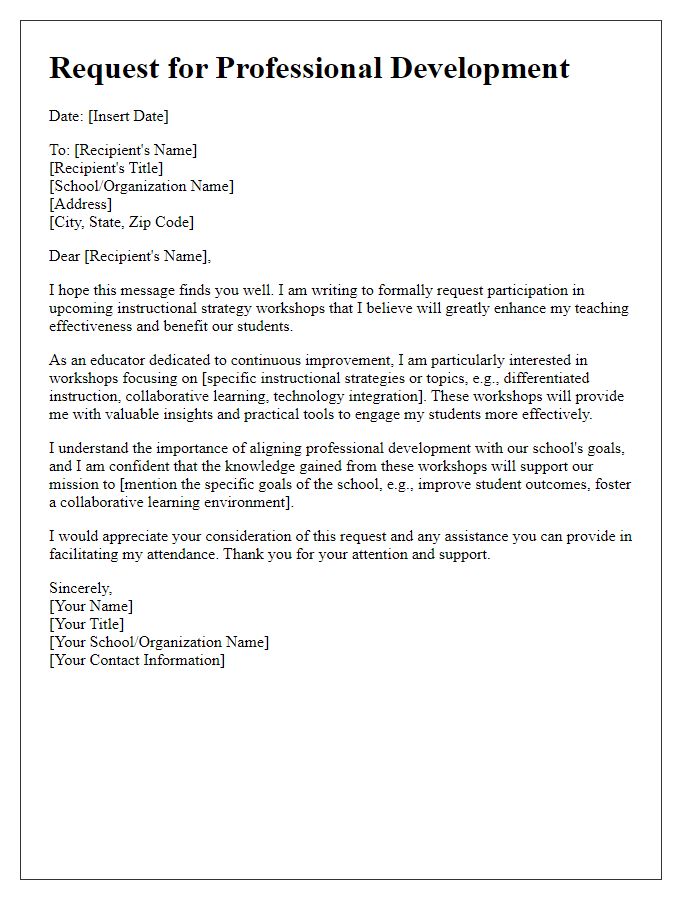

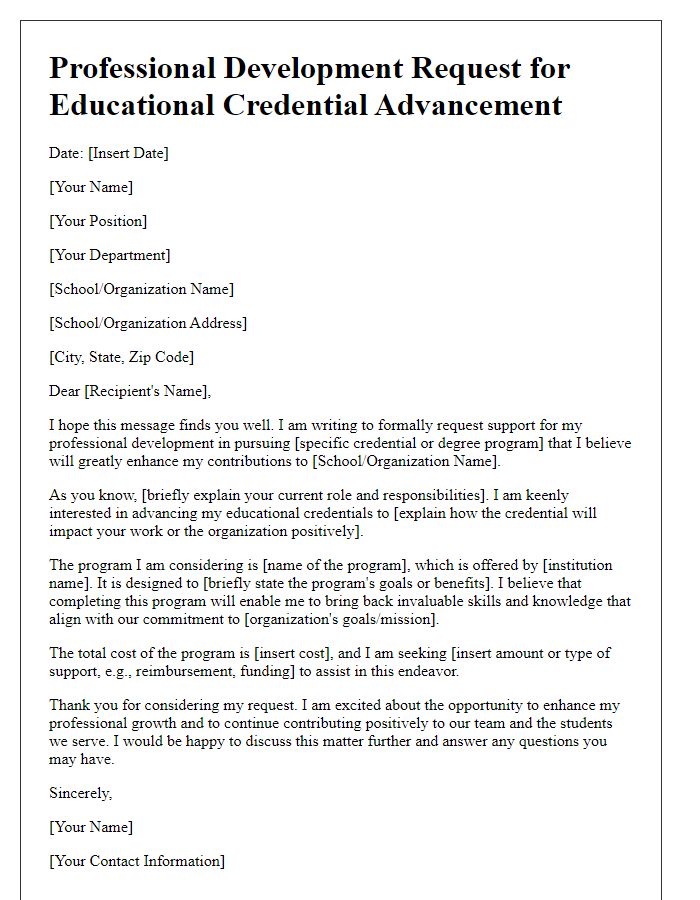


Comments